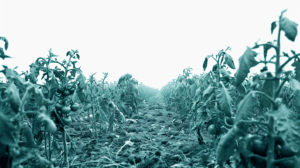Understanding the Impact of the EU Soil Monitoring Directive
60% of European soils are unhealthy – meaning they have sustained damage to their structure, microbial composition and overall nutrients. That in turn makes them more susceptible to erosion (being carried away by rain or wind) and their cultivation more input-intensive. This degradation is estimated to cost 50 billion euro per year in lost services. The European commission has recently adopted the proposal for the Soil Monitoring Directive. This directive aims to enhance the sustainability and resilience of the food system by addressing soil degradation and ensuring the long-term health of Europe’s soil resources.
Why soil health matters
Soil serves as a fundamental resource that sustains agriculture, biodiversity, and ecosystem functioning. Healthy soils provide a fertile and resilient foundation for crop cultivation, since they can better withstand extreme weather events like droughts, heatwaves, or floods, and require less fertigation and chemical inputs. Additionally, soils play a crucial role in regulating water resources, storing carbon, and mitigating climate change, acting as a natural filter to prevent contaminants from entering the groundwater and mitigate the impacts of intensive farming. Furthermore, soils support a diverse array of organisms, including microorganisms, insects, and plant roots, contributing to the overall health and resilience of ecosystems.
Understanding the EU Soil Monitoring Directive:
The EU Soil Monitoring Directive represents a significant step in safeguarding soil quality and ensuring its sustainable use. The directive, which will be up for further approvals late this year, focuses on assessing and monitoring soil health, analyzing potential risks to soil quality, and developing measures to mitigate those risks. The specific measures and programs initiated by the directive will largely depend on member states, yet both businesses and green activists are pushing for substantial investments. By promoting soil conservation and sustainable land management through incentive programs and monitoring initiatives, the EU aims to preserve soil resources for future generations and foster a resilient food system.
How will the new directive Impact Food & Beverage Companies?
Similar to the USDA’s Climate smart commodities initiative, the soil monitoring initiative can provide financial aid and collaboration opportunities for companies seeking to scale up their regenerative agriculture and soil health initiative within their supply chains. One planet business for biodiversity – a business coalition whose members include Nestle, Unilever and Danone – actually criticized the proposal for not going far enough. Their response underlines the opportunities this initiative can create for sustainability-minded enterprises.
How will the directive impact farmers?
The directive is a carrot, rather than a stick, meaning it will include incentive programs for farmers to benefit from, but no penalties for those who choose not to participate. Such incentivization initiatives may include tools to scale the adoption of precision farming techniques, such as targeted fertilization and optimized irrigation, to minimize soil erosion and nutrient loss. Farmers who already employ sustainable land management practices are well positioned to receive support or grants and become a leading partner to champion soil health.
The role of technology
Agronomic intelligence – including data from remote sensing, Internet of Things (IoT) devices, data analytics, and agricultural management systems can be leveraged to enhance soil health. Farmers and food & beverage companies can gather real-time data on soil quality, erosion risks, and nutrient levels, enabling informed decision-making, precise resource allocation, and proactive measures to protect soil health.
As a bonus, agronomic intelligence can streamline incentive eligibility by providing evidence on activities and improvement metrics.
The EU Soil Monitoring Directive represents a pivotal initiative aimed at safeguarding soil health and promoting sustainable land management practices. If passed, it could enable food & beverage companies and growers to capitalize on initiatives and contribute to a resilient and environmentally conscious food system, while ensuring the long-term viability of Europe’s soil resources.








